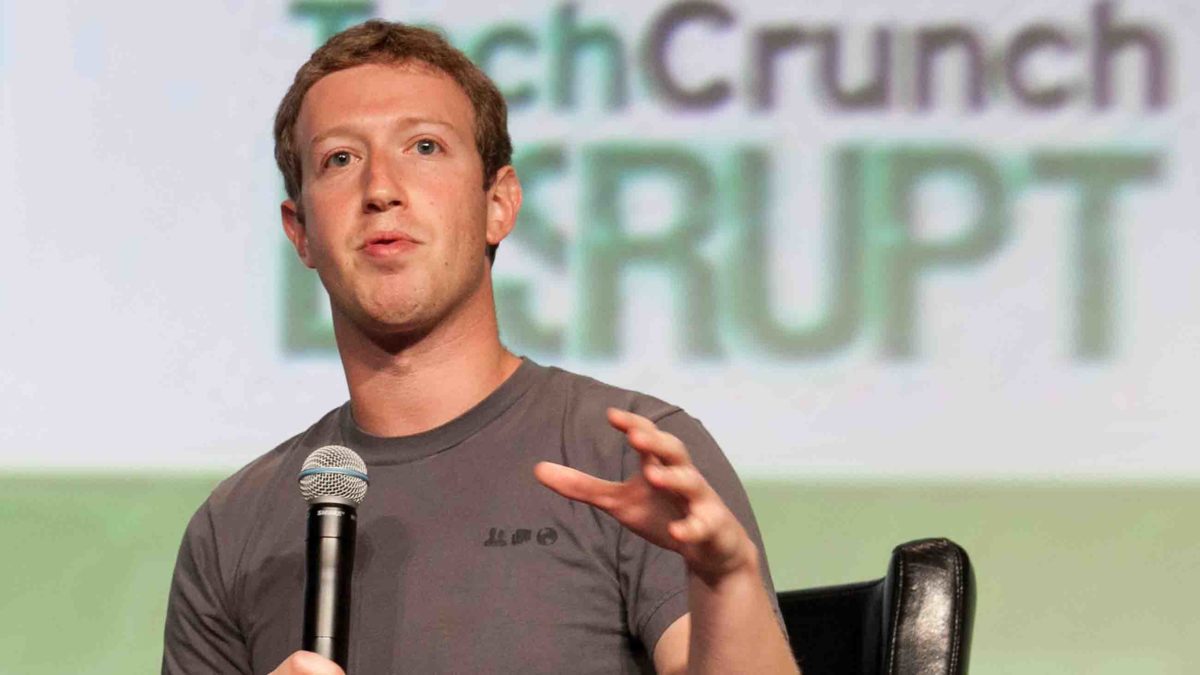To say this hasn’t been a good week for Facebook would be an understatement. Following reports that user information ostensibly gathered for academic research had made its way into the hands of Cambridge Analytica, the political consulting firm working on the Trump campaign, the social media giant faced falling stock prices, investigations from both American and British authorities, and a deluge of infuriated former employees, privacy experts, and of course, social media users.

Facebook founder Mark Zuckerberg has come under fire this week for his company’s handling of data collection by political consulting firm Cambridge Analytica.
Visual: JD Lasica/Flickr
Given the business practices illustrated in an undercover investigation of Cambridge Analytica, and that company’s reported use of the collected data to target American voters in the 2016 presidential election, concerns regarding Facebook’s role and a call for more privacy from consumers seems inevitable. But academic researchers who rely on Facebook insights to conduct their work are concerned that the fallout could hinder future studies.
The data at the center of the scandal was supposedly collected for research purposes through an online personality quiz app in 2014. Created by Cambridge University psychologist Aleksandr Kogan, the app required that users grant access to parts of their profiles, and in turn allow it to draw information about their friends as well. Kogan then turned that information — collected from tens of millions of users — over to Cambridge Analytica. Facebook claims that when it found out about the violation of its terms in 2015, it was assured the data had been deleted. (It hadn’t.)
Although Facebook has cut back on the amount and types of data it shares with third-party companies since then, drawing information through apps like the one created by Cambridge Analytica is fairly routine. With tighter controls on this and other methods of data collection in the pipeline, however, researchers may soon encounter more red tape. Moreover, those who require audience engagement in their work may find it harder to recruit participants.
“People who consented thought it was for science,” Casey Fiesler, an assistant professor in the Department of Information Science at the University of Colorado Boulder, told The Guardian of Kogan’s quiz. “Will people stop wanting to participate in studies?”
Also in the news:
• The death of a pedestrian last weekend — thought to be the first killed by a self-driving car — has animated a roiling debate over whether the vehicle’s sensors ought to have been able to detect the woman as she walked her bicycle across a dark road in Tempe, Arizona. In the initial days following the accident, police had suggested that the collision was inevitable. “It’s very clear it would have been difficult to avoid this collision in any kind of mode — autonomous or human-driven,” Tempe’s police chief was quoted as saying on Monday. But dashcam video released later in the week called that early assessment into question. “The victim did not come out of nowhere,” a University of South Carolina professor who studies autonomous vehicles, told The Associated Press. “She’s moving on a dark road, but it’s an open road, so lidar and radar should have detected and classified her.” A research engineer at the University of California, Berkeley, told Wired magazine on Wednesday: “This is one that should have been straightforward.” Uber, the company that was testing the self-driving car, has grounded its fleet of autonomous vehicles while the investigation continues. (NPR, Wired)
• The next breakthrough in contraception could be a birth control pill for men. Researchers reported last weekend that a daily dose of the drug DMAU safely lowered testosterone levels in all 83 men aged 18 to 50 who completed a 28-day trial of the pill. Side effects were mild: a small average gain in weight, a decrease in high-density (“good”) cholesterol, and diminished sex drive in eight of the men. The next step is a three-month clinical trial to make sure sperm counts stay low enough to prevent conception, followed by a trial in couples. The scientists say the pill could represent a major new front in efforts against unplanned pregnancy. “It’s hard to solve the problem,” said the study’s first author, Arthi Thirumalai of the University of Washington Medical Center in Seattle, “when you essentially exclude half the world’s population from doing anything about it.” (Science News)
• The Great Pacific Garbage Patch is rapidly accumulating more and more waste, according to a study published in the journal Scientific Reports this week. Measuring the trash pile’s size over three years, a team of scientists from The Ocean Cleanup, a foundation focused on developing technologies to remove plastic pollution from the ocean, determined it to be growing at an exponential rate since measurements began in the 1970s. The patch, located halfway between Hawaii and California, is now estimated to be three times that of France, containing 1.8 trillion pieces of plastic and weighing as much as 500 jumbo jets. Contrary to previous models and estimates, the team found that microplastics make up only 8 percent of the patch’s total mass. Roughly half of the patch is made up of fishing nets and lines, which the research team plans to try and remove later this year. (National Geographic)
• A woman in Spain died from a lethal allergic reaction to bee venom used in an alternative acupuncture session. According to the Journal of Investigational Allergology and Clinical Immunology — which first reported the death — the woman had undergone several previous live bee acupuncture sessions without adverse reactions. The authors of the report note, however, that repeated exposure to the allergen carries a greater risk of severe allergic reactions than in the general population. While proponents of apitherapy, the branch of alternative medicine under which bee acupuncture falls, make wide-ranging claims for its health benefits, the evidence remains to be seen. “The risks of undergoing apitherapy may exceed the presumed benefits,” the report’s authors wrote, “leading us to conclude that this practice is both unsafe and unadvisable.” (Washington Post)
• On Wednesday, Health and Human Services Secretary Alex Azar announced the appointment of virologist and physician Robert Redfield to head the Centers for Disease Control and Prevention. The announcement comes two months after the agency’s former director, Brenda Fitzgerald, abruptly resigned over revelations of her investments in tobacco companies. Redfield is a professor at the University of Maryland School of Medicine and associate director of the school’s Institute of Human Virology. While Azar highlighted Redfield’s work on HIV/AIDS in his announcement, critics point out that the researcher faced accusations of scientific misconduct in the 1990s for misrepresenting data while serving in the Army Medical Corps. Redfield was cleared of the charges against him, but had to correct the data. While with the Army, he also advocated for mandatory HIV testing and supporting segregating HIV-positive members of the military. While many critics have urged the president to rethink Redfield’s appointment, other HIV/AIDS advocates are optimistic that his views have evolved. (Vox)
• And finally: Between 1966 and 1977, when schoolchildren were asked to draw a picture of scientist, the results showed a startling imbalance: Only 28 out of almost 5,000 drawings showed a female researcher — a mere .6 percent. Since then, according to a long-term analysis published this week in the journal Child Development, that gender imbalance has shifted toward more balance. The researchers found that between 1985 and 2016, on average, some 28 percent of the students drew a woman scientist at work. But those numbers are nuanced in a way that suggests ongoing problems. For instance, a majority of six-year-old girls drew pictures of female scientists, but by age 16, three-quarters drew pictures of male scientists. “This is a critical period in which kids are learning stereotypes,” said David Miller, a member of the research team at Northwestern University. He urged that teachers make a greater point of emphasizing diversity in such professions. (Science News)











Comments are automatically closed one year after article publication. Archived comments are below.
Since the Great Pacific Garbage Patch is getting larger, maybe we should claim it as another of the U.S. possession. Everybody seems to think it is our trash or things that were being shipped to us anyhow. And maybe we better do it before China does.